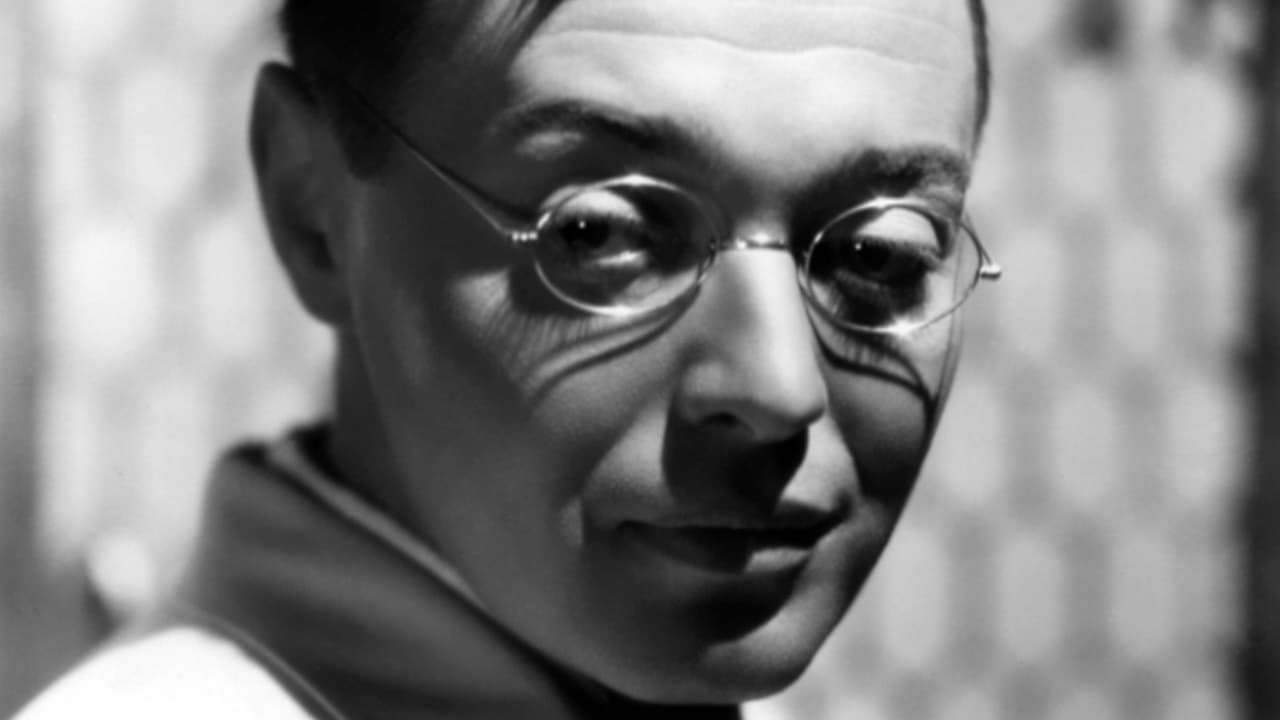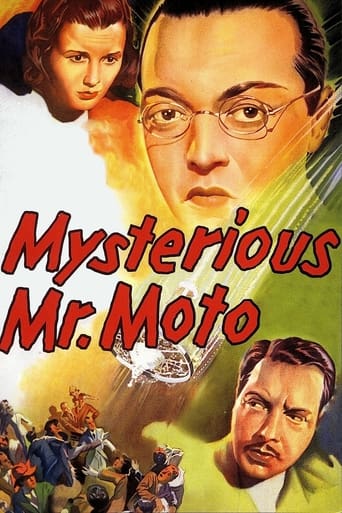



Too much of everything
Absolutely Fantastic
The tone of this movie is interesting -- the stakes are both dramatic and high, but it's balanced with a lot of fun, tongue and cheek dialogue.
View MoreStrong acting helps the film overcome an uncertain premise and create characters that hold our attention absolutely.
View MoreMr. Moto (Peter Lorre) has himself imprisoned on Devil's Island so he can help his cellmate (Leon Ames) escape and thereby get the goods on a gang of international killers.Trying to determine where the racism begins, ends and is even refuted in the Mr. Moto pictures is a fun game. Certainly, Moto himself can be thought of as a racist invention because of his portrayal by white man. But then, he is portrayed as clever and likable, so it is not as though the creators meant to insult the Japanese.Further, the film actually shows men acting racist and presents them in a poor light. And a subtle jab is given to racism when Moto is able to easily get through a gate by merely being a house servant. Who is foolish here? On top of all this, we have a fairly decent detective story, a jail break, and a mighty impressive bar fight.
View MorePeter Lorre is "Mysterious Mr. Moto," a Japanese detective who seems to know everything that's going on. A very likable character, Moto, not surprisingly, stopped solving crimes after Pearl Harbor.In this, the fifth entry into the series, Moto escapes Devil's Island with another man, Paul Brissac (Leon Ames), as Moto is on the trail of an assassination group, of which Brissac is a member. Moto wants the top man. Since Brissac trusts him, Moto becomes his houseboy and gets a look at the rest of the group. But not the leader. The group is threatening the life of a man, Anton Darvak (Henry Wilcoxon), who has a steel formula the group wants. Moto works to protect him.The film has a very lively denouement, and Moto dons several disguises during the film. Peter Lorre is wonderful. Moto has it all over Chan, as it takes Chan time to figure things out. Moto seems to know it all pretty early on, and he's quite an active participant in whatever it takes to solve the crime.It's impossible to believe, however, that a man one step up from the village idiot, Anton Darvak, has any type of a formula unless it's for adding 2 and 2. He's not worth protecting, that's for sure.This is a short movie, and the main thing it's got going for it is Lorre. The plot isn't great. And as short as it is, some of it moves slowly. But what action there is, is very good.
View MoreThis series was a competitor to the more long-running Charlie Chan stories. The differences are striking.Chan seems to never know what is going on until the end, when he has sussed out an amazingly complex set of circumstances. Our job during the movie is simply to collect facts that will only mean something when the final story is told. During this task we are given a few jokes. Chan's job is precisely the same as ours and we are always with him when he discovers something. He's just smarter, the product of a more clever race. Moto knows ahead of time much of what's going on. The stories aren't detective stories; they're adventure stories. Moto isn't a passive, simple observer on the viewer's side of the stage, but a participant, an actor who plays a role in disguise. He fights. He thwarts the bad guys. In his normal persona, he's much more poised, more genteel. More schooled. Its the superiority of the man, not the race.These each are sides of Sherlock Holmes in the two variants of stories. Interesting to see how they were bifurcated during this period. They'd stay separated until now, each developing into its own genre.Ted's Evaluation -- 2 of 3: Has some interesting elements.
View MoreA well-conceived story in the Moto series with Lorre escaping from Devil's Island with a British gangster and then parading as his houseboy/servant. Lorre never gets enough credit for his skill as an actor as he gives us two performances as a Japanese, one as Mr. Moto and one as the houseboy as played by Mr. Moto. Both portrayals are markedly different and his Ito performance does suggest a lot of racism that was going on at the time to the Japanese. Watch the film for the mystery involved, Lorre's great performance, and bear in mind the context of the times when the film was made. The scene with Lorre and some pub roughs is a gem as is the finale scene in an art museum. For all the press that goes out about the inherent racism in these films, few ever talk about the fact that Mr. Moto is a cultured, intelligent man who always bests his adversaries in whatever endeavor they partake of.
View More